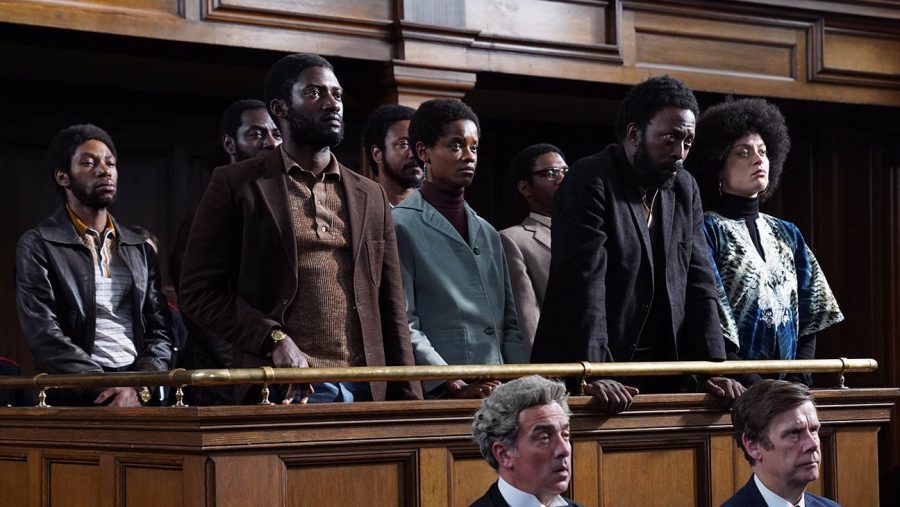NYFF58: Mangrove (2020) Review
Steve McQueen’s ‘60s Courtroom Drama is One of 2020’s Most Urgent and Invigorating
October 1, 2020
Hypocrisy is the weapon used by oppressors, especially those in power, to uphold their own privilege. No matter how flawed someone’s judgement is, whether they’re aware of it or not, they continue to contradict themselves to maintain the status quo. Hypocrisy is even more unforgivable when it comes directly from the people who are meant to protect us.
This type of oppression has trapped millions of people in a hopeless cycle of doubt and anxiety, questioning if justice will ever be served. However, it’s also inspired countless men and women across the world to fight against the odds every single day to achieve equality. “Mangrove” is a testament to nine brave individuals who flipped the hypocritical system on its head and made history.
For the first chronological entry in his Small Axe series of features, all debuting at the 58th New York Film Festival, British director Steve McQueen delivers an invigorating, ferocious portrait of systemic racism and resistance in Notting Hill, London in his latest biopic. During the late ‘60s, Frank Crichlow’s Mangrove café served as a meeting ground for the neighborhood’s local West Indian community and Black activists. The restaurant was raided multiple times by police without any evidence of illegal activity, spawning peaceful protests from the community. When officers began arresting and brutalizing protestors, a group of defendants known as the Mangrove Nine, including Crichlow, took to the courts to face their oppressors
An unrelenting indictment against a corrupt justice system, “Mangrove” captures its subject matter with equal amounts of restraint and directness. McQueen is no stranger to keeping the camera lingering on unflinching violence for far longer than normally expected, as shown by his 2013 adaptation of 12 Years a Slave. Once again, his direction is just as impactful. He wastes very little time in the first act to steadily raise tensions through multiple instances of police raids to a prominent protest scene.
The craftsmanship on display throughout these moments is spellbinding; the camera is positioned right in the front lines, whether a scene is taking place in a small, crowded room or an open street, while the music grows increasingly more violent to complement the visuals. The nearly flawless execution makes you wonder just how long McQueen has been wanting to make this movie.
Yet the heart of “Mangrove” lies not in its gripping moments, rather its characters. The film creates a beautiful contrast between the violent scenes and the more somber, intimate ones through his development of the Mangrove Nine defendants. Their motivations are made abundantly clear through subtle lines of dialogue and clever visual motifs. When the pacing eventually slows down as the court case grows more prominent, the emotions of the characters are put on full display as they work to overturn the racist system that wants to arrest them.
The second half truly highlights just how impeccable the acting is; Shaun Parkes, Letitia Wright, and Malachi Kirby blend perfectly into their roles with raw, unfiltered passion. There are so many moments where their dialogue is relatively sustained, yet they convey so much emotion through facial expressions alone.
“Mangrove” is more than just a diamond in the rough after a year of lackluster filmmaking, it is a fiery call to action that wants us to fight corruption by flipping it on its head. Although it depicts events that occurred over 50 years ago, the issues it addresses are applicable to today. Steve McQueen continues to prove that he’s one of the finest directors working today with one of the best films of the year, and he still has two more to show off this festival.
Rating: ★★★★½

